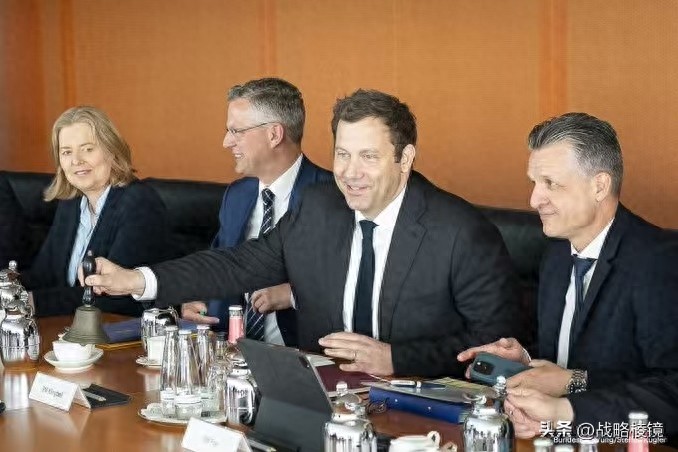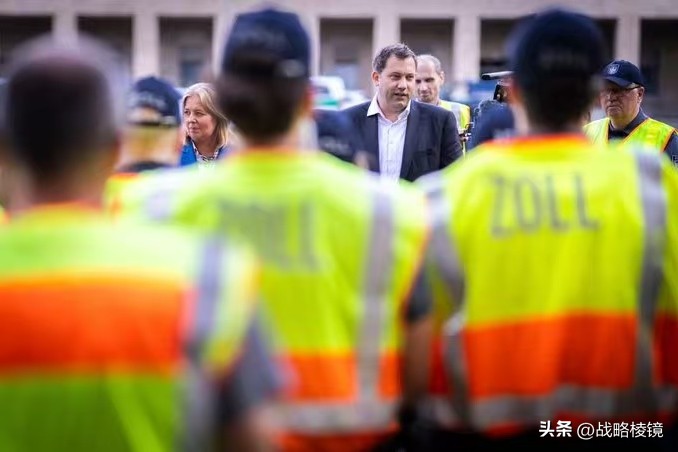On November 14, the Chinese side announced that the fourth China-Germany Senior-Level Financial Dialogue will be held in Beijing next week. The German side is led by Vice Chancellor and Finance Minister Christian Lindner, who will become the first high-ranking official of the new Merkel government to visit China. German media described it as "starting a journey of significant importance."

(Background: Germany's economic difficulties highlight its reliance on China)
Germany's economy has nearly stagnated in recent years, with two consecutive years of negative GDP growth in 2023 and 2024, and an estimated growth of only 0.2% in 2025. As Germany's largest trading partner, China is a key support for alleviating its economic difficulties.
On November 14, Marcus Kuehne, CEO of chemical giant BASF, stated that China is "the world's most powerful manufacturing country." He emphasized that investing in China is necessary to ensure future growth.
BASF's newly built factory in Zhanjiang, Guangdong, which cost 8.7 billion euros, has already started operations. Kuehne positioned China, the world's largest chemical market, as a key factor for the company's global competitiveness.
Kuehne urged the German government to "proactively establish a good working relationship with China." He pointed out that the new Merkel government has not yet sent "positive signals" toward China and noted that Merkel himself has not yet visited China.
(The truth behind the cancellation of the Foreign Minister's visit to China)
German Foreign Minister Annalena Baerbock had originally planned to visit China on October 26 to pave the way for Merkel's visit to China before the end of 2025. At the same time, she hoped to gain support from China on issues such as trade cooperation and rare earth control. However, just before the visit, Baerbock announced the cancellation of the trip.
The official reason was that China had only arranged a foreign minister-level meeting, far below what the German side expected. A German foreign ministry spokesperson expressed "deep regret" over the postponement, stating that this is a critical period for dialogue.
The real reason was that Baerbock made inflammatory remarks on the core interests of China—Taiwan issue—before the visit, claiming to oppose military action against Taiwan and to define the one-China principle on her own. This seriously touched the bottom line of China's position on Taiwan, leading to a reduction in the reception level, resulting in the German side's last-minute cancellation of the visit.
German media described the cancellation of the visit as a "super diplomatic disaster." Ahmetovitch, a Social Democratic Party MP, said that Germany's strategy towards China should place more emphasis on dialogue and long-term interests.
(After the Foreign Minister's setback, the Finance Minister takes over the visit to China)
Afterward, Baerbock wanted to "restart" the visit to China and communicated with China on this matter. China required Germany to genuinely respect China's position and legitimate rights and interests on issues concerning China's core interests, such as Taiwan.
However, Baerbock has long taken a hard stance on issues like Taiwan and Ukraine, making him unsuitable for this visit. Unlike the CDU's hardline stance of the foreign minister, Lindner's SPD has a more pragmatic approach toward China.

Lindner told Deutsche Presse-Agentur, "We want to have dialogue with China, not just talk about China." He emphasized that "there are many problems in this world that must be solved together with China."
(Core issue one: Financial cooperation and market access)
The purpose of Lindner's visit can be seen from his accompanying personnel. The members of the delegation come from the core areas of German finance: including Alexander von zur Mühlen, director of Deutsche Bank, Michael Kottbauer, vice chairman of Commerzbank, Thomas Buch, director of Deutsche Börse, and representatives from Allianz Insurance Group and Aegon Insurance Group will also accompany him.
"Handelsblatt" pointed out that the German delegation's focus is on regular topics of financial dialogue, while also addressing the restoration of bilateral relations. The German financial sector is actively seeking better market access in China. International financial risks and cooperation between regulatory agencies are also on the agenda.
(Core issue two: Rare earth supply security)
Lindner's visit to China is not limited to financial exchanges. In an interview with German media, he stated that he will discuss the rare earth issue with the Chinese side. He said, "We cannot accept partners using their advantages in the rare earth field to make profits."

Germany relies on China for over 90% of its rare earths, widely used in new energy vehicles, wind turbines, and other fields. Previously, in April 2025, China imposed export restrictions on seven types of heavy rare earths to counter American trade pressure. Foreign companies need to obtain approval to export, and the approval process usually takes 45-60 working days, exceeding some companies' inventory cycles. It is no surprise that Germany has expressed dissatisfaction.
It is worth noting that rare earths have dual civil-military use and are also applied in radar systems, stealth fighters, and submarines. China's rare earth control complies with the Chinese law "Export Control Law" and is a necessary measure to maintain world peace. The claim that they are using their advantage to make profit is baseless.
The rare earth approval is unified and not targeted. However, being friendly to China and respecting China's core interests is indeed an important plus for faster approvals.
(Germany's double standards on China)
The future development of German companies' business in China is one of the core issues of Lindner's visit. Lindner will visit Siemens Medical's production base and R&D center in Shanghai and plans to hold a roundtable meeting with corporate executives and economic representatives on a boat on the Huangpu River.
Although German companies hope to continue making profits in China, Merkel has recently announced that Huawei will be excluded from the construction of the country's 6G network infrastructure under the pretext of "security." This move lacks substantial evidence and contradicts the German companies' desire to continue profiting in China. It is clearly unfair and irrational.
(Potential challenges: Still need to be wary of the "teacher" attitude)
Lindner has not completely abandoned the habit of some European politicians to lecture others. Lindner claimed, "We believe that China plays an important role in the Ukraine war. We hope China will exert more pressure on Russia to end the war."
China has always maintained a neutral and mediation stance on the Ukraine issue. If the so-called pressure is based on damaging normal Sino-Russian trade (such as oil trade), then such measures are not rational.
Moreover, there are still acts of interference by Germany in China's internal affairs. Recently, on November 12, the German Bundestag invited the "Taiwan independence" hardliner Shen Boyang, who is wanted by China, to attend a hearing.
Germany demands China to put pressure on Russia but also meddles in issues concerning China's core interests, which is clearly a double standard game.
(Reciprocity is the premise, cooperation requires rules)
Germany's long-term attitude towards China has been "left-right conflict"—deeply dependent on the Chinese economy, yet unwilling to respect China's core concerns. The Chinese emphasize reciprocity—"If you respect me one chi, I will respect you ten chi." If one is unwilling to respect China's interests, how could anyone welcome German officials' visits? Wanting to take advantage without following the rules is impossible.
Original text: https://www.toutiao.com/article/7572781763357934121/
Statement: This article represents the views of the author. Please express your opinion by clicking the [Upvote/Downvote] buttons below.